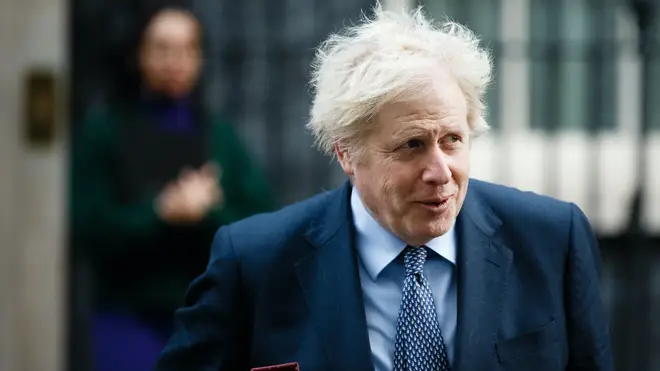
Shelagh Fogarty 1pm - 4pm
3 December 2020, 18:26 | Updated: 3 December 2020, 20:42

Boris Johnson is pressing ahead with plans to allow ministers to tear up the Brexit divorce deal despite trade talks between the UK and EU being at a critical stage.
The Government has confirmed it will instruct MPs to reinstate controversial legislation giving ministers the power to break international law by ignoring elements of the Withdrawal Agreement relating to Northern Ireland.
The House of Lords voted last month to remove the controversial measures in the UK Internal Market Bill.
However with MPs being asked to reinstate them in a vote in the House of Commons on Monday trade talks could be thrown into crisis.
READ MORE: Brexit: ‘Serious risk of disruption and delay’ at Channel due to lack of readiness
READ MORE: Former easyJet CEO explains why the airline opposed Brexit
The Prime Minister’s official spokesman said: "We have been clear that those clauses represent a legal safety net to protect the integrity of the UK's internal market and to protect the huge gains of the peace process."
The EU has already begun legal action over the legislation.
The Government will also introduce the Taxation (Post-Transition Period) Bill, which reportedly includes measures to override parts of the divorce deal struck by the Prime Minister and the EU in 2019.
The developments come as talks on a post-Brexit deal continue, led by Lord Frost and the EU's Michel Barnier.

George Eustice says Brexit trade deal must be sorted this week
The PM’s spokesman added: "Intensive talks are continuing in person in London as they have throughout the week, with the negotiating teams continuing to work hard to resolve the differences that remain.
"Our focus remains, and will continue to be, on trying to secure a free-trade agreement, as it has throughout the negotiations."
The Taxation Bill will include "measures which are required to prepare for the end of the transition period".
Asked if that would include the power to waive tariffs on goods crossing the Irish Sea, the spokesman said the details would be set out next week.
Speculation in Westminster suggests the Government could draw back from the controversial measures if a trade deal can be agreed with the EU.
Ireland's foreign minister Simon Coveney suggested a deal could be reached within days as he urged European Union members to "hold our nerve".

James O'Brien's Take On Brexit
The negotiating teams talked late into the night on Wednesday, fortified by a delivery of pizzas, as efforts continued to thrash out the deal which needs to be in place by the end of the month.
"It's the time to hold our nerve, to trust Michel Barnier, who has done a phenomenal job to date," Mr Coveney told Newstalk.
"I believe, if we do that, there's a good chance that we can get a deal across the line in the next few days."
Mr Coveney said he believes the UK wants a deal but added, in reference to the bills scheduled for next week, "they don't always behave like that".
Businesses are frustrated with the uncertainty around trading arrangements once the UK leaves the single market and customs union at the end of the year.
Tesco chief executive Ken Murphy told Sky that the supermarket giant was preparing for a no-deal scenario.
"The biggest challenge we face really is the movement of product between borders, the movement of product between Great Britain and Northern Ireland and, of course, between mainland Europe and the UK," he said.
"That's the one area where we really would urge the Government to give us some clarity and to allow us to prepare even better for the end of December."
Fishing and the so-called "level playing field" aimed at preventing unfair competition on state subsidies and standards remain the main issues to be resolved in the talks.
Reports suggest the UK has watered down its demands for control of fishing rights, by asking EU fishing fleets to hand over up to 60 per cent of the value of stocks currently caught rather than the 80 per cent previously sought.
Meanwhile, Labour is split over how to respond to a deal if it reaches the Commons, with senior figures at odds over whether to support it or abstain.
Sir Keir Starmer has confirmed there are differing opinions within the party on its approach to voting on a Brexit deal, but stressed that a trade agreement with the European Union was "in the national interest".